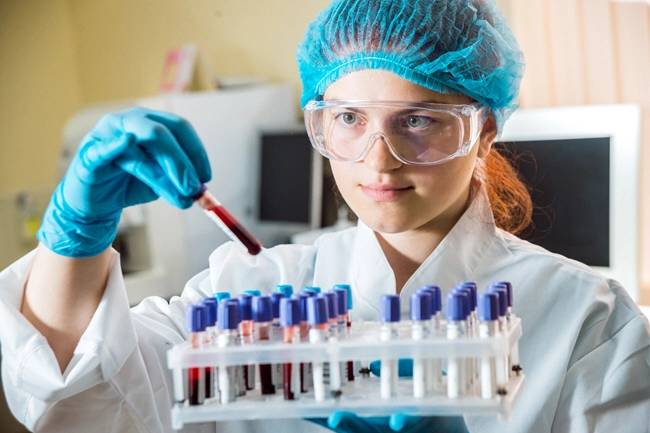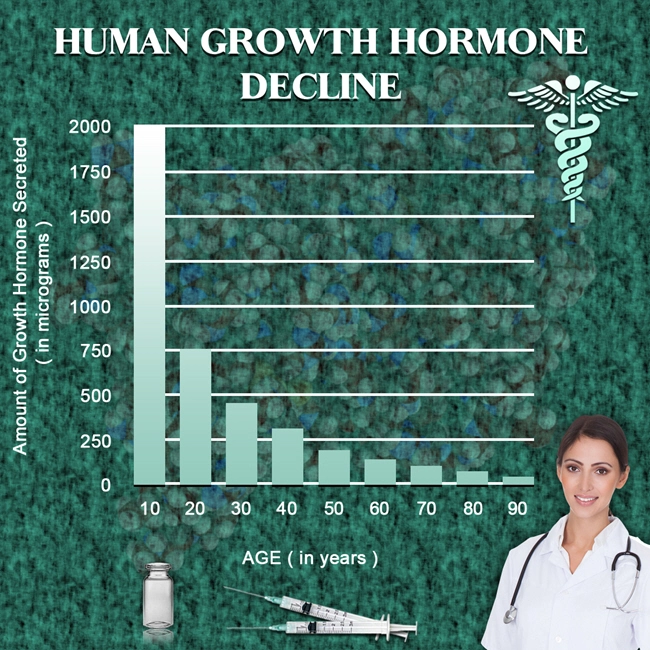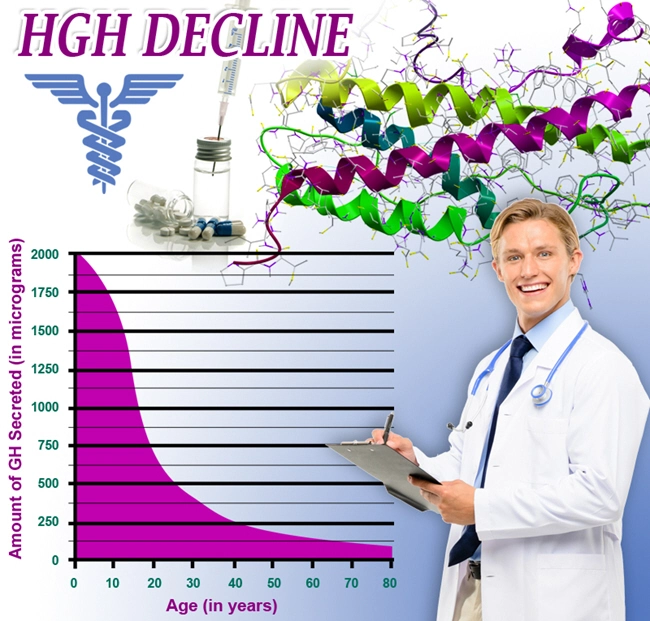
Introduction to Secondary Hypogonadism
Secondary hypogonadism, a condition characterized by the inadequate production of testosterone due to a dysfunction in the hypothalamus or pituitary gland, is a critical health issue that affects many American men. This condition, often overshadowed by its primary counterpart, can lead to a myriad of symptoms including decreased libido, erectile dysfunction, fatigue, and mood disturbances. The importance of education on this topic cannot be overstated, as early recognition and management can significantly improve quality of life.
The Prevalence and Impact of Secondary Hypogonadism
In the United States, secondary hypogonadism is more common than many might realize. It is estimated that a significant percentage of men with hypogonadism suffer from the secondary form. The impact of this condition extends beyond physical symptoms; it can affect mental health, relationships, and overall well-being. Men with secondary hypogonadism may experience a decline in muscle mass, increased body fat, and a general sense of lethargy, which can hinder their daily activities and professional performance.
Causes and Risk Factors
Understanding the causes and risk factors of secondary hypogonadism is crucial for prevention and early intervention. This condition can be triggered by various factors, including genetic disorders, infections, tumors, and certain medications. Additionally, lifestyle factors such as obesity, stress, and chronic illnesses can contribute to the development of secondary hypogonadism. American men, particularly those with a sedentary lifestyle or those who are overweight, should be aware of these risks and take proactive steps to mitigate them.
Diagnosis and Treatment Options
Diagnosing secondary hypogonadism involves a comprehensive evaluation, including blood tests to measure testosterone levels and imaging studies to assess the hypothalamus and pituitary gland. Once diagnosed, treatment options may include hormone replacement therapy, lifestyle modifications, and addressing underlying medical conditions. Hormone replacement therapy, which involves administering testosterone, can help alleviate symptoms and improve quality of life. However, it is essential for men to work closely with healthcare providers to monitor treatment and manage potential side effects.
The Role of Education and Awareness
Education and awareness are pivotal in managing secondary hypogonadism effectively. American men need to be informed about the signs and symptoms of this condition, as well as the importance of seeking medical advice if they experience any concerning symptoms. Public health campaigns and educational programs can play a significant role in disseminating this information and encouraging men to prioritize their health.
Lifestyle Modifications and Preventive Measures
In addition to medical treatment, lifestyle modifications can play a crucial role in managing and preventing secondary hypogonadism. Regular exercise, a balanced diet, and stress management techniques can help improve overall health and potentially mitigate the risk of developing this condition. American men should be encouraged to adopt these healthy habits as part of their routine to maintain optimal testosterone levels and overall well-being.
Conclusion: Empowering American Men Through Knowledge
Secondary hypogonadism is a significant health concern that requires attention and action from both the medical community and the general public. By increasing education and awareness, American men can be empowered to recognize the symptoms, seek timely medical intervention, and adopt lifestyle changes that promote health and vitality. As we continue to advance our understanding of this condition, it is imperative that we prioritize education and support for those affected, ensuring a healthier future for all men.
Contact Us Today For A Free Consultation
Dear Patient,
Once you have completing the above contact form, for security purposes and confirmation, please confirm your information by calling us.
Please call now: 1-800-380-5339.
Welcoming You To Our Clinic, Professor Tom Henderson.

- Secondary Hypogonadism in American Men: Cardiovascular Risks and Management Strategies [Last Updated On: February 26th, 2025] [Originally Added On: February 26th, 2025]
- Secondary Hypogonadism: Impacts on Cognitive Function and Treatment Options in American Men [Last Updated On: March 18th, 2025] [Originally Added On: March 18th, 2025]
- Secondary Hypogonadism: Understanding Its Impact on Sleep and Health in American Men [Last Updated On: March 18th, 2025] [Originally Added On: March 18th, 2025]
- Stress-Induced Secondary Hypogonadism in American Males: Causes and Management Strategies [Last Updated On: March 18th, 2025] [Originally Added On: March 18th, 2025]
- Secondary Hypogonadism: Symptoms, Diagnosis, and Management Strategies for American Men [Last Updated On: March 18th, 2025] [Originally Added On: March 18th, 2025]
- Secondary Hypogonadism: Understanding Its Profound Psychological Impacts on American Men [Last Updated On: March 19th, 2025] [Originally Added On: March 19th, 2025]
- Genetic Insights into Secondary Hypogonadism in American Males: Diagnosis and Treatment [Last Updated On: March 19th, 2025] [Originally Added On: March 19th, 2025]
- Secondary Hypogonadism in American Males: Impact on Energy and Treatment Options [Last Updated On: March 20th, 2025] [Originally Added On: March 20th, 2025]
- Secondary Hypogonadism and Prostate Health: Impacts, Diagnosis, and Management Strategies [Last Updated On: March 21st, 2025] [Originally Added On: March 21st, 2025]
- Support Systems Crucial for Managing Secondary Hypogonadism in American Men [Last Updated On: March 21st, 2025] [Originally Added On: March 21st, 2025]
- Secondary Hypogonadism and Hair Loss: Causes, Diagnosis, and Treatment for American Males [Last Updated On: March 21st, 2025] [Originally Added On: March 21st, 2025]
- Secondary Hypogonadism: Impacts on Body Composition and Health in American Men [Last Updated On: March 22nd, 2025] [Originally Added On: March 22nd, 2025]
- Exercise Strategies for Managing Secondary Hypogonadism in American Males [Last Updated On: March 22nd, 2025] [Originally Added On: March 22nd, 2025]
- Secondary Hypogonadism in American Males: Pituitary Gland's Role and Treatment Options [Last Updated On: March 22nd, 2025] [Originally Added On: March 22nd, 2025]
- Alternative Therapies for Secondary Hypogonadism: A Comprehensive Guide for American Men [Last Updated On: March 22nd, 2025] [Originally Added On: March 22nd, 2025]
- Secondary Hypogonadism and Anemia: Understanding and Managing the Connection in American Males [Last Updated On: March 22nd, 2025] [Originally Added On: March 22nd, 2025]
- Secondary Hypogonadism's Impact on Immune Function in American Men [Last Updated On: March 23rd, 2025] [Originally Added On: March 23rd, 2025]
- Secondary Hypogonadism's Impact on Skin Health in American Men: Causes and Management [Last Updated On: March 23rd, 2025] [Originally Added On: March 23rd, 2025]
- Environmental Factors Driving Secondary Hypogonadism in American Men: A Comprehensive Analysis [Last Updated On: March 23rd, 2025] [Originally Added On: March 23rd, 2025]
- Secondary Hypogonadism: Impacts on Health and Importance of Early Detection in American Men [Last Updated On: March 24th, 2025] [Originally Added On: March 24th, 2025]
- Secondary Hypogonadism's Impact on Kidney Function: Symptoms, Diagnosis, and Management [Last Updated On: March 24th, 2025] [Originally Added On: March 24th, 2025]
- Nutrition's Role in Managing Secondary Hypogonadism in American Males [Last Updated On: March 24th, 2025] [Originally Added On: March 24th, 2025]
- Understanding Secondary Hypogonadism: Causes, Symptoms, and Treatment in American Males [Last Updated On: March 24th, 2025] [Originally Added On: March 24th, 2025]
- Secondary Hypogonadism and Mood Disorders in American Men: Links and Management Strategies [Last Updated On: March 25th, 2025] [Originally Added On: March 25th, 2025]
- Secondary Hypogonadism and Diabetes: Impact and Management in American Males [Last Updated On: March 25th, 2025] [Originally Added On: March 25th, 2025]
- Thyroid Function's Impact on Secondary Hypogonadism in American Males: Diagnosis and Management [Last Updated On: March 25th, 2025] [Originally Added On: March 25th, 2025]
- Understanding Secondary Hypogonadism: Symptoms, Diagnosis, and Management in American Males [Last Updated On: March 25th, 2025] [Originally Added On: March 25th, 2025]
- Secondary Hypogonadism: Impacts and Management Strategies for American Men's Quality of Life [Last Updated On: March 25th, 2025] [Originally Added On: March 25th, 2025]
- Managing Fatigue in American Males with Secondary Hypogonadism: Causes and Strategies [Last Updated On: March 26th, 2025] [Originally Added On: March 26th, 2025]
- Understanding and Managing Secondary Hypogonadism in American Males: Symptoms, Causes, and Treatments [Last Updated On: March 26th, 2025] [Originally Added On: March 26th, 2025]
- Secondary Hypogonadism in American Males: Lifestyle Factors and Medical Interventions [Last Updated On: March 26th, 2025] [Originally Added On: March 26th, 2025]
- Secondary Hypogonadism: Impact on Libido and Treatment Options for American Males [Last Updated On: March 26th, 2025] [Originally Added On: March 26th, 2025]
- Secondary Hypogonadism and Liver Health: A Critical Connection for American Males [Last Updated On: March 26th, 2025] [Originally Added On: March 26th, 2025]
- Secondary Hypogonadism: Causes, Diagnosis, and Management for American Males [Last Updated On: March 26th, 2025] [Originally Added On: March 26th, 2025]
- Secondary Hypogonadism's Impact on Fat Distribution in American Men [Last Updated On: March 26th, 2025] [Originally Added On: March 26th, 2025]
- Managing Secondary Hypogonadism: Stress, Nutrition, and Holistic Approaches for American Males [Last Updated On: March 26th, 2025] [Originally Added On: March 26th, 2025]
- Exercise as a Key Strategy in Managing Secondary Hypogonadism in American Men [Last Updated On: March 27th, 2025] [Originally Added On: March 27th, 2025]
- Secondary Hypogonadism's Impact on Physical Performance in American Men [Last Updated On: March 27th, 2025] [Originally Added On: March 27th, 2025]
- Secondary Hypogonadism: Impact on Emotional Health in American Men [Last Updated On: March 27th, 2025] [Originally Added On: March 27th, 2025]
- Sleep Disorders and Secondary Hypogonadism: Mechanisms, Evidence, and Treatment Implications in American Men [Last Updated On: March 27th, 2025] [Originally Added On: March 27th, 2025]
- Secondary Hypogonadism: Impact on Muscle Strength and Treatment in American Men [Last Updated On: March 27th, 2025] [Originally Added On: March 27th, 2025]
- Secondary Hypogonadism's Psychological Impact on American Men: A Comprehensive Overview [Last Updated On: March 27th, 2025] [Originally Added On: March 27th, 2025]
- Secondary Hypogonadism's Impact on Bone Density in American Men: Causes and Management [Last Updated On: March 28th, 2025] [Originally Added On: March 28th, 2025]
- Secondary Hypogonadism and Autoimmune Diseases: Insights and Management in American Men [Last Updated On: March 28th, 2025] [Originally Added On: March 28th, 2025]
- Secondary Hypogonadism: Impacts on American Men's Social Life and Health [Last Updated On: March 28th, 2025] [Originally Added On: March 28th, 2025]
- Secondary Hypogonadism and Cardiovascular Health: Risks and Management Strategies for American Males [Last Updated On: March 28th, 2025] [Originally Added On: March 28th, 2025]
- Secondary Hypogonadism's Impact on Mental Health in American Males: A Comprehensive Overview [Last Updated On: March 28th, 2025] [Originally Added On: March 28th, 2025]
- Secondary Hypogonadism's Impact on Mood in American Men: Causes, Effects, and Management [Last Updated On: March 28th, 2025] [Originally Added On: March 28th, 2025]
- Secondary Hypogonadism: Symptoms, Causes, and Treatment for American Males [Last Updated On: March 28th, 2025] [Originally Added On: March 28th, 2025]
- Secondary Hypogonadism in American Males: Causes, Monitoring, and Management Strategies [Last Updated On: March 30th, 2025] [Originally Added On: March 30th, 2025]
- Secondary Hypogonadism's Impact on Cognitive Function in American Men [Last Updated On: March 30th, 2025] [Originally Added On: March 30th, 2025]
- Understanding Secondary Hypogonadism: Symptoms, Diagnosis, and Hormonal Therapies for American Males [Last Updated On: March 31st, 2025] [Originally Added On: March 31st, 2025]
- Secondary Hypogonadism: Impact on Energy, Vitality, and American Men's Health [Last Updated On: April 2nd, 2025] [Originally Added On: April 2nd, 2025]
- Managing Secondary Hypogonadism: The Role of Diet in Hormonal Health [Last Updated On: April 3rd, 2025] [Originally Added On: April 3rd, 2025]
- Secondary Hypogonadism: Impact on Weight and Management Strategies for American Males [Last Updated On: April 4th, 2025] [Originally Added On: April 4th, 2025]
- Understanding Secondary Hypogonadism: Causes, Symptoms, and Management for American Males [Last Updated On: April 6th, 2025] [Originally Added On: April 6th, 2025]
- Secondary Hypogonadism: Impacts on Men's Health and Relationships in America [Last Updated On: April 7th, 2025] [Originally Added On: April 7th, 2025]
- Sleep's Impact on Secondary Hypogonadism in American Males: A Comprehensive Overview [Last Updated On: April 8th, 2025] [Originally Added On: April 8th, 2025]
- Secondary Hypogonadism's Impact on Emotional Resilience in American Men [Last Updated On: April 8th, 2025] [Originally Added On: April 8th, 2025]
- Community Support Enhances Management of Secondary Hypogonadism in American Men [Last Updated On: April 9th, 2025] [Originally Added On: April 9th, 2025]
- Secondary Hypogonadism in American Males: Holistic Treatment and Management Strategies [Last Updated On: April 9th, 2025] [Originally Added On: April 9th, 2025]
- Secondary Hypogonadism's Impact on Cognitive Function in American Men [Last Updated On: April 10th, 2025] [Originally Added On: April 10th, 2025]
- Secondary Hypogonadism: Impacts and Management for American Men's Daily Life [Last Updated On: April 10th, 2025] [Originally Added On: April 10th, 2025]
- Understanding Secondary Hypogonadism: Symptoms, Causes, and Treatment in American Males [Last Updated On: April 11th, 2025] [Originally Added On: April 11th, 2025]
- Secondary Hypogonadism in American Males: Causes, Symptoms, and Personalized Treatment [Last Updated On: April 12th, 2025] [Originally Added On: April 12th, 2025]
- Secondary Hypogonadism: Impacts on Mental Health and Holistic Management Strategies [Last Updated On: April 12th, 2025] [Originally Added On: April 12th, 2025]
- Managing Secondary Hypogonadism in American Men: A Comprehensive Approach [Last Updated On: April 13th, 2025] [Originally Added On: April 13th, 2025]
- Managing Secondary Hypogonadism: Symptoms, Causes, and Treatment in American Males [Last Updated On: April 15th, 2025] [Originally Added On: April 15th, 2025]
- Secondary Hypogonadism: Emotional Impacts and Comprehensive Management Strategies [Last Updated On: April 16th, 2025] [Originally Added On: April 16th, 2025]
- Managing Secondary Hypogonadism: Importance of Regular Health Check-ups for American Males [Last Updated On: April 16th, 2025] [Originally Added On: April 16th, 2025]
- Secondary Hypogonadism: Impacts on Men's Vitality and Management Strategies [Last Updated On: April 16th, 2025] [Originally Added On: April 16th, 2025]
- Understanding Secondary Hypogonadism: Causes, Symptoms, and Management for American Males [Last Updated On: April 17th, 2025] [Originally Added On: April 17th, 2025]
- Secondary Hypogonadism in American Males: Lifestyle Impact and Management Strategies [Last Updated On: April 17th, 2025] [Originally Added On: April 17th, 2025]
- Secondary Hypogonadism: Symptoms, Causes, and Management in American Males [Last Updated On: April 17th, 2025] [Originally Added On: April 17th, 2025]
- Nutrition's Role in Managing Secondary Hypogonadism: Boosting Testosterone Naturally [Last Updated On: April 19th, 2025] [Originally Added On: April 19th, 2025]
- Secondary Hypogonadism: Impacts on Muscle, Bone, and Cardiovascular Health in American Men [Last Updated On: April 19th, 2025] [Originally Added On: April 19th, 2025]
- Secondary Hypogonadism: Impact on Self-Esteem and Treatment Options for American Men [Last Updated On: April 20th, 2025] [Originally Added On: April 20th, 2025]









